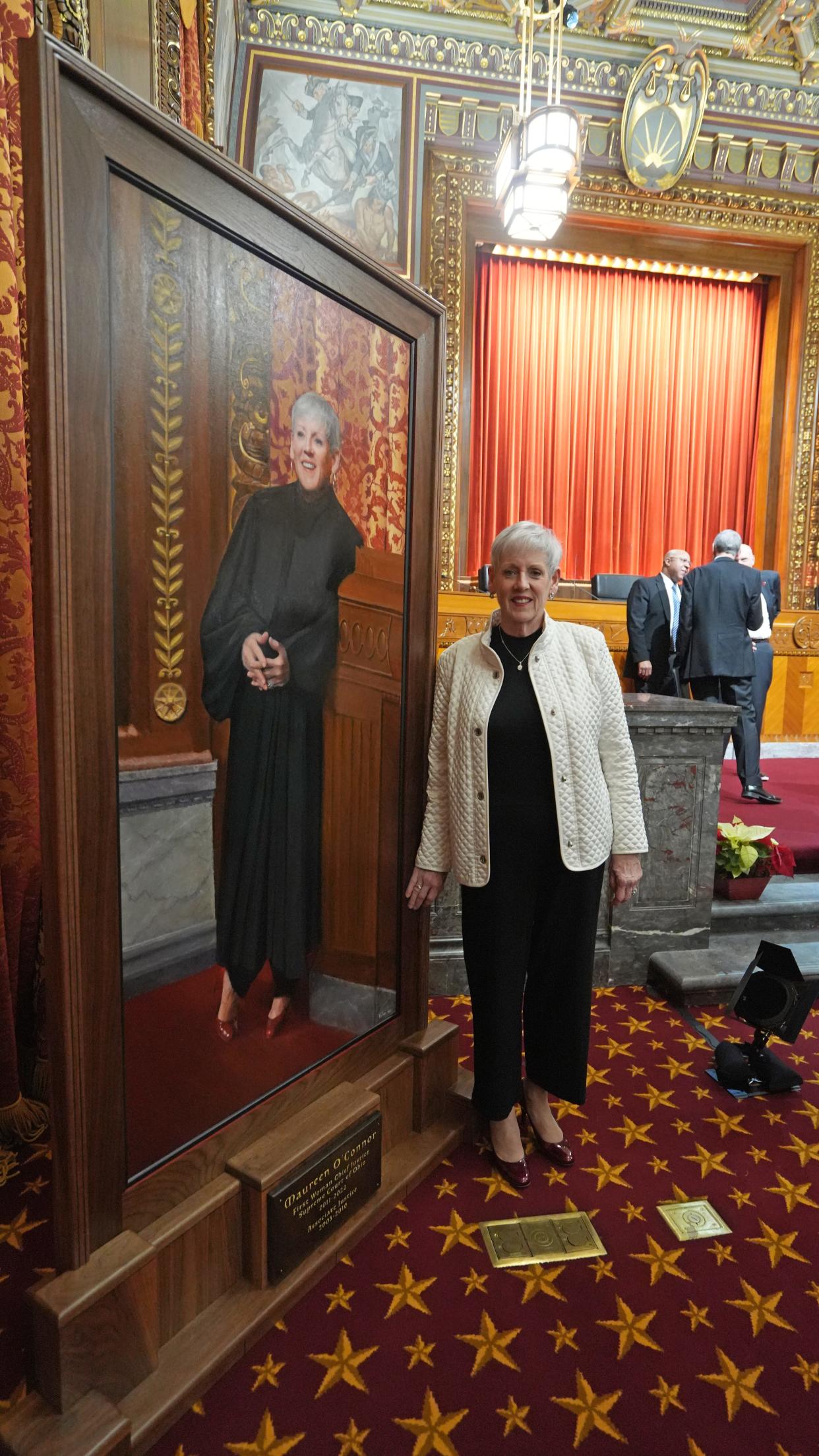Retired Chief Justice Maureen O'Connor ramps up efforts for redistricting reform in 2024

- Oops!Something went wrong.Please try again later.
Former Ohio Supreme Court Chief Justice Maureen O'Connor has set her sights on redistricting reform in 2024.
O'Connor spoke about her career at a Columbus Metropolitan Club luncheon Wednesday, just weeks after stepping down from the bench due to age limits. Her tenure as the longest serving woman in state politics came to a tumultuous end after she angered her own party amid the chaotic process to draw statehouse and congressional districts.
During the panel with former Justice Yvette McGee Brown, O'Connor said a proposed constitutional amendment to change redistricting rules is a matter of when, not if.
"That's going to take a constitutional amendment, which is a very complicated thing to get off the ground, very time consuming, very costly," she told the crowd. "Time will tell whether that happens. It's something I'm spending time on now with a core group of people. We're talking about it very seriously."
Ohio voters approved redistricting reforms in 2015 and 2018, but the latest mapmaking process was heavily politicized and riddled with lawsuits. O'Connor, a Republican, sided with the court's Democratic justices in multiple rulings that declared congressional and legislative maps unconstitutional. The seven-member Ohio Redistricting Commission ignored the court's orders to redraw the maps.
A federal court eventually allowed Ohio to use unconstitutional maps in the 2022 elections, but lawmakers must go back to the drawing board for 2024. It's unclear when they plan to do that.
O'Connor said it's too soon to say what proposal will be put forward, but she's advocated multiple times for an independent commission. She said any new amendment will take time to craft so it's comprehensive and free from loopholes.
She declined to say who she's working with on the issue.
"There would be no elected officials on the redistricting commission in an ideal format," O'Connor said. "Other states have done it and have done it successfully."
O'Connor weighs in on bail amendment
O'Connor also criticized a new constitutional amendment, approved by voters in November, that says courts must consider these factors when setting bail amounts: public safety, a person's criminal record, the likelihood the defendant will show up for court and the seriousness of the offense. Bail is intended to ensure that someone will show up for court.
The push for the amendment came after O'Connor and three Democratic justices ruled that excessive bail is unconstitutional. In that case, DuBose v. McGuffey, the justices found judges should only consider whether someone is a flight risk. Attorney General Dave Yost and other Republicans argued public safety should be a factor.
"(The opinion) was weaponized during the campaigns of the Supreme Court justices in '22," O'Connor said. "And it was also then a constitutional amendment that 'a judge has to consider public safety when they're setting a bond.' Duh. That's the constitutional amendment we have now. Isn't that nice?"
Laura A. Bischoff of the USA TODAY Network Ohio Bureau contributed to this article.
Haley BeMiller is a reporter for the USA TODAY Network Ohio Bureau, which serves the Columbus Dispatch, Cincinnati Enquirer, Akron Beacon Journal and 18 other affiliated news organizations across Ohio.
This article originally appeared on The Columbus Dispatch: Maureen O'Connor aims for Ohio redistricting reform in 2024

